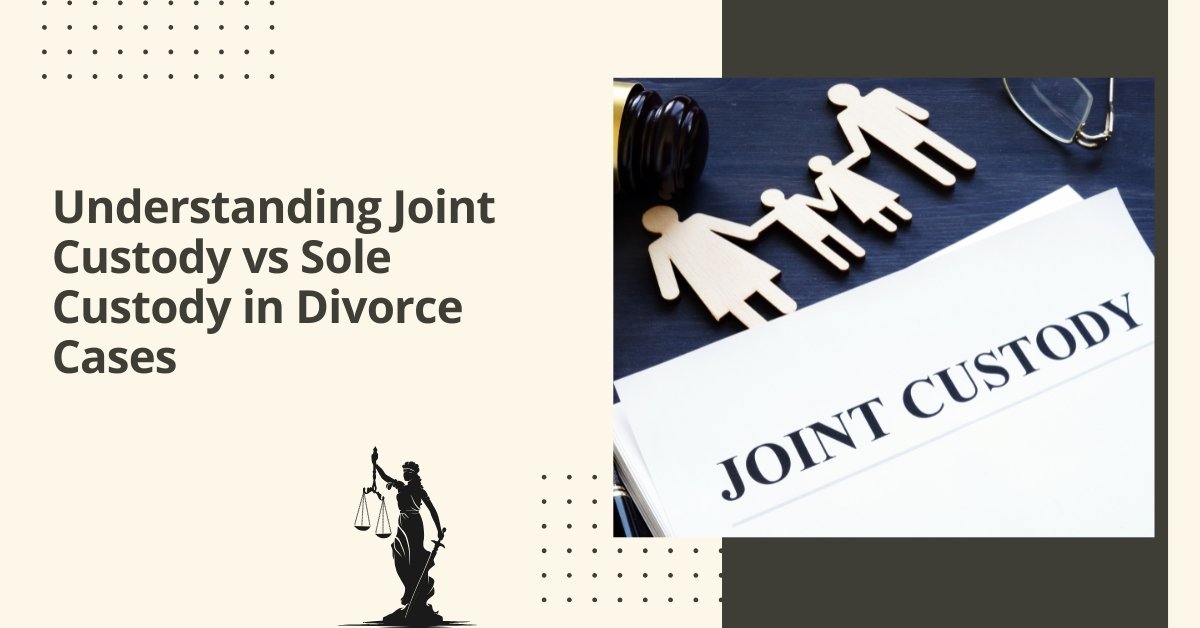A Step-by-Step Guide to the Divorce Process
 Divorce can feel overwhelming, emotional, and complicated. However, understanding the steps involved can ease some of the stress and help you prepare for what lies ahead. Whether the split is amicable or contentious, having a clear roadmap can make all the difference. In this guide, we’ll break down the divorce process step-by-step, helping you navigate this major life transition with confidence.
Divorce can feel overwhelming, emotional, and complicated. However, understanding the steps involved can ease some of the stress and help you prepare for what lies ahead. Whether the split is amicable or contentious, having a clear roadmap can make all the difference. In this guide, we’ll break down the divorce process step-by-step, helping you navigate this major life transition with confidence.
Step 1: Decide to Divorce
The first and often hardest step is making the decision to divorce. Some couples spend months — or even years — contemplating separation before taking action. It’s important to be sure about your decision because once the process starts, it can be emotionally and financially taxing. Counseling, therapy, or even trial separations can sometimes help couples gain clarity before proceeding.
Key Tip: Make sure the decision is mutual if possible, as this can make the process smoother and less adversarial.
Step 2: Consult with a Divorce Attorney
Once you’ve decided to move forward, your next step should be consulting with an experienced divorce lawyer. Even if you and your spouse are parting on good terms, legal guidance ensures your rights are protected. Your lawyer will explain your options, whether it’s a contested divorce, uncontested divorce, mediation, or collaborative divorce.
What to Ask Your Attorney
- How does the divorce process work in my state?
- What are my rights regarding property, assets, and custody?
- How much will the divorce likely cost?
Step 3: File the Divorce Petition
One spouse must file a legal petition (sometimes called a “complaint for dissolution of marriage”) to start the divorce officially. This document states the grounds for divorce, whether no-fault (irreconcilable differences) or fault-based (such as adultery or abandonment).
The petition is usually filed with the family court in the jurisdiction where at least one spouse resides.
Important: Filing fees vary by state and can range from a few hundred dollars to more, depending on where you live.
Step 4: Serve the Divorce Papers
After filing the petition, the next step is to legally notify your spouse by “serving” them with divorce papers. This ensures that they are officially aware of the divorce proceedings.
- If your spouse agrees to accept service, they can simply sign an acknowledgment form.
- If not, a process server, sheriff, or other professional may deliver the papers.
Note: Some states require personal service, while others allow service by mail.
Step 5: Response by the Other Spouse
After being served, the other spouse (known as the “respondent”) has a limited time (often 20–30 days) to file a response. In the response, they can agree with the divorce terms or contest them, leading to a contested divorce that may involve litigation.
If no response is filed, the court may grant a default judgment favoring the petitioner.
Step 6: Temporary Orders (If Necessary)
Divorce cases can take months or even years to finalize. In the meantime, you might need temporary orders to address urgent issues like:
- Child custody and visitation
- Child support or spousal support (alimony)
- Use of marital property (like who stays in the family home)
Temporary orders ensure that life remains as stable as possible while the divorce is pending.
Tip: Courts prioritize the best interests of the children when issuing temporary custody orders.
Step 7: Discovery Process
During the discovery phase, both parties exchange information and documents relevant to the divorce. This might include:
- Financial statements
- Tax returns
- Pay stubs
- Property appraisals
- Debt records
Discovery ensures transparency and helps both sides prepare for negotiations or court proceedings.
Types of Discovery Tools
- Interrogatories (written questions)
- Depositions (sworn testimony)
- Requests for production of documents
Step 8: Negotiation and Settlement
Most divorces are settled out of court through negotiation or mediation. Spouses, often through their attorneys, work together to resolve issues like:
- Property division
- Custody arrangements
- Child support and alimony
If both sides can reach an agreement, they draft a Settlement Agreement that outlines all the terms.
Benefits of Settlement
- Less expensive than a trial
- Faster resolution
- Less emotional stress
- Greater control over the outcome
Mediation is often required by the court before a trial can take place.
Step 9: Trial (If Necessary)
If negotiation fails, the divorce moves to trial. Each side presents evidence and calls witnesses to support their case. A judge (and sometimes a jury) will decide all unresolved issues.
Trials can be lengthy, expensive, and emotionally draining. Most attorneys encourage settlement to avoid court unless absolutely necessary.
Trial Issues May Include
- Division of complex assets
- Disputed child custody
- Allegations of abuse or misconduct
Step 10: Final Judgment and Decree of Divorce
Once all issues are resolved, either through settlement or trial, the judge issues a Final Judgment of Divorce (also called a Divorce Decree). This legal document formally ends the marriage and outlines all terms, including:
- Division of assets and debts
- Custody and visitation schedules
- Child support and alimony obligations
Both parties must abide by the terms of the divorce decree. Violations can lead to legal penalties.
Moving Forward with Confidence After Divorce
The divorce process can be daunting, but understanding each step makes it much more manageable. Having the right legal support, staying organized, and keeping communication as respectful as possible can greatly reduce the emotional and financial toll. Remember: divorce is not just an ending — it’s also the beginning of a new chapter.
If you’re considering divorce, consulting an experienced family law attorney is the best way to protect your interests and start building your future. If you are located in Pune and need expert assistance, reaching out to the best divorce lawyer in Pune can make a significant difference in ensuring a smooth and fair resolution. A skilled local attorney will understand the specific legal processes in Pune and can guide you every step of the way.
Most Recent Posts
- All Posts
- Child Custody
- Criminal
- Divorce
- Family
- Law
- Property
Category
Explore Our Services
Empower Your Future with Expert Legal Guidance. Consult with Leading Divorce Lawyers at Adv.Mayur N. Gajbhiye for Professional, Compassionate Representation, Ensuring a Smooth and Informed Legal Journey.







